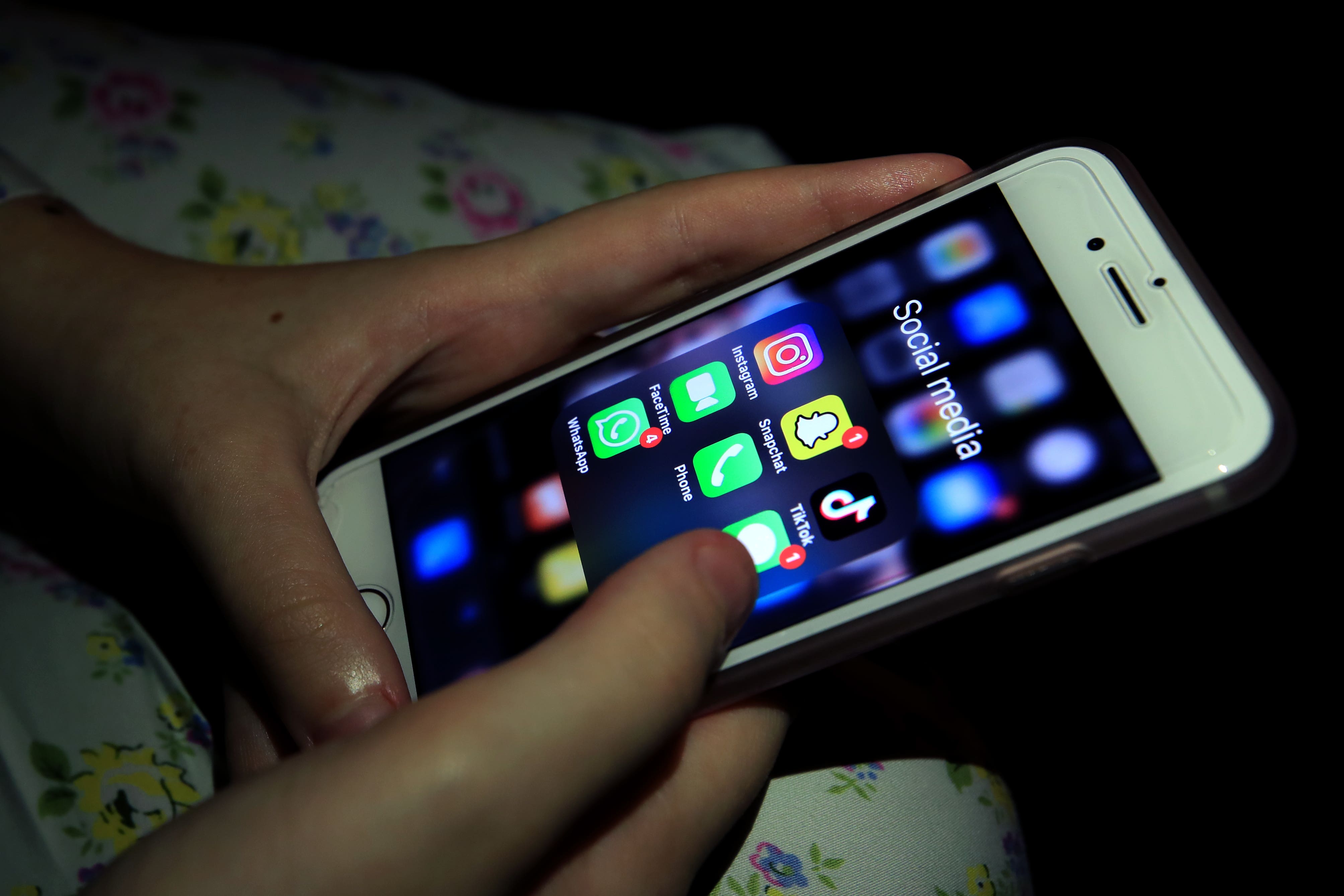U16s social media ban punishes children for tech firm failures, charities say
The Australian government has introduced a Bill into the country’s parliament that would ban all those under 16 from accessing social media.

Children should not be “punished” or “penalised” for the failures of tech companies, UK online safety campaigners have said, in response to Australia’s plans to ban under-16s from social media.
The Australian government has introduced a Bill into the country’s parliament that would require platforms to introduce age restrictions and verification procedures to prevent those aged under 16 from accessing their sites.
Under the proposed new laws, social media platforms would face fines of up to 50 million Australian dollars (£25.8 million) for failing to prevent children from holding accounts on their services.
But UK online safety experts have said that the strict approach punishes children for the failures of online services to make their platforms safe and age-appropriate.
To try and introduce a blanket ban on under 16s, as being introduced in Australia, would penalise children for the failures of tech companies to make their sites properly safe for young users and deliver age-appropriate experiences
Sir Peter Wanless, chief executive of the NSPCC, said: “Social media is now an integral part of young people’s lives. It provides them with opportunities to communicate with friends and family, to learn and be creative.
“We understand the concerns about children having access to social media that is fundamentally unsafe for them.
“However, children deserve to have age appropriate experiences online rather than being cut off from it all together.
“To try and introduce a blanket ban on under 16s, as being introduced in Australia, would penalise children for the failures of tech companies to make their sites properly safe for young users and deliver age-appropriate experiences.
“Here in the UK, the Online Safety Act must be implemented ambitiously by Ofcom, to ensure that services are held accountable for comprehensively tackling the risks children face online.”
The Online Safety Act was passed by Parliament last year and is to begin coming into force from next year, with new duties placed on platforms to protect users from illegal and harmful content, and large fines for those who fail to do so.
Banning under-16s from social media is a retrograde step that would push risks and bad actors on to gaming and messaging services and leave young people at a cliff edge of harm when they turn 16
Andy Burrows, chief executive of the Molly Rose Foundation, said that cutting off under-16s from social media could create a “cliff edge of harm” when children are suddenly able to access the sites.
“Banning under-16s from social media is a retrograde step that would push risks and bad actors on to gaming and messaging services and leave young people at a cliff edge of harm when they turn 16.
“It is crucial the UK Government delivers strengthened legislation to make online platforms safe and age appropriate rather than bans that would erase the benefits of regulation and come with a slew of unintended consequences.
“Children should not be punished for the failures of tech platforms nor the delayed response from successive governments.
“Children’s safety deserves strong, effective solutions to complex problems, not knee jerk responses that would do more harm than good.”
Introducing the Bill to the Australian parliament, the country’s communications minister, Michelle Rowland, said the aim was to “set a new normative value in society that accessing social media is not the defining feature of growing up in Australia”.
She highlighted figures that showed two-thirds of 14 to 17-year-olds in Australia had viewed “extremely harmful content”.
“This is about protecting young people, not punishing or isolating them, and letting parents know that we’re in their corner when it comes to supporting their children’s health and wellbeing,” she said.
Bookmark popover
Removed from bookmarks